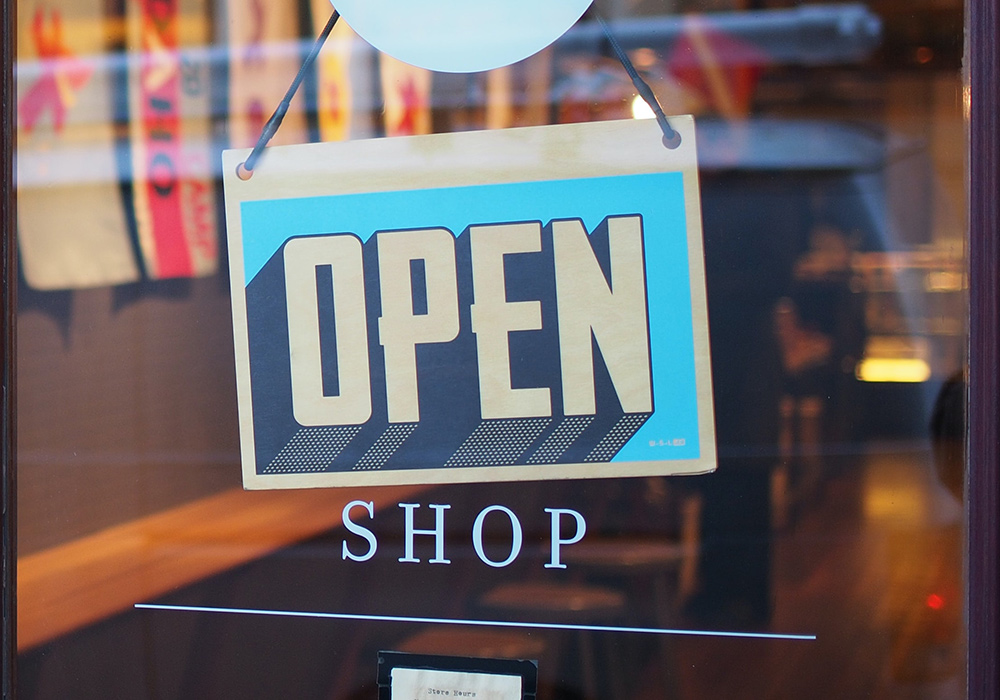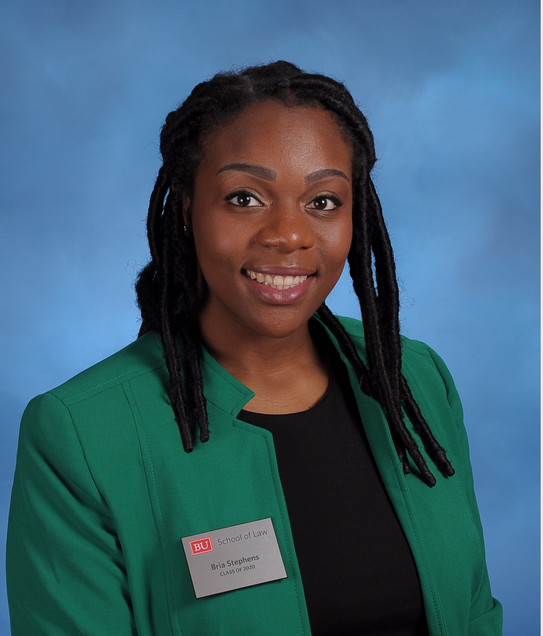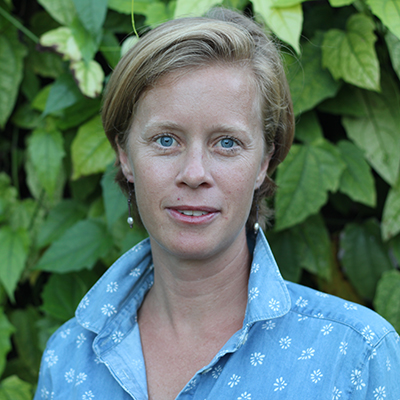Lending a Hand to Small Business Owners
As a BU Law public service fellow at Bet Tzedek in Los Angeles, Bria Stephens (’20) helps entrepreneurs from underrepresented communities, including with their pandemic-specific concerns.

Lending a Hand to Small Business Owners
As a BU Law public service fellow at Bet Tzedek in Los Angeles, Bria Stephens (’20) helps entrepreneurs from underrepresented communities, including with their pandemic-specific concerns.
One of the first questions Bria Stephens (’20) asks potential clients as the attorney in charge of Bet Tzedek’s small business development project is: What’s going on?

During the COVID-19 pandemic, with so many businesses shut down as part of efforts to prevent the spread of the virus, the responses have been emotional.
“On most of my phone calls, someone is in tears,” Stephens says.
Bet Tzedek, a nonprofit provider of free legal services in Los Angeles, started its small business development project in 2017 in recognition of the role entrepreneurship can play in helping lift people out of poverty. Before the pandemic, the program helped about 100 clients per year. In 2020, that number more than doubled, with 250 people receiving assistance. Most of those requests were related to the impacts of the pandemic, including how to access relief funds, and, more recently, how to stave off commercial eviction.
Stephens joined Bet Tzedek in October as the recipient of the Boston University School of Law Yanan & Dan Schwartz Fellowship, one of several fellowships that allow students to pursue yearlong public interest positions. As the only full-time staff member on Bet Tzedek’s small business development team, her role includes conducting intake interviews, matching clients with pro bono attorneys who can assist them, overseeing volunteers, and helping come up with content for the program’s webinars, which offer free general business law lessons and, in the past year, pandemic-specific advice (Bet Tzedek’s small business development project is a partner in Los Angeles’ LA Represents initiative, which was created to provide legal assistance during the pandemic).
For Stephens, the job was a perfect fit. The Mississippi native’s interest in business law was inspired in part by her father, a writer who started his own limited liability company (LLC), and her grandmother, who once pursued a patent for a car seat with a robotic arm for a baby’s bottle. Stephens studied English literature at the University of Mississippi. Her love of writing—“In another life, I would be a writer,” she says—and the idea of people being able to control their creative products helped inspire her path to the law.
“It’s important to be able to protect what you produce,” she says.
At BU Law, Stephens fell more specifically in love with intellectual property in a course with Professor Wendy Gordon, who also supervised Stephens’ note on the different repercussions of copyright violations and plagiarism. Stephens completed a concentration in IP and information law and served as executive editor of the Journal of Science and Technology Law. In her third year, she participated in the BU/MIT Startup Law Clinic, helping student entrepreneurs form LLCs, file trademark applications, defend their copyrights with take-down notices, and issue stock.
That experience set her up nicely for the small business development role at Bet Tzedek.
“When I saw [the job posting], I thought, ‘This is exactly what I do,’” she recalls.
Being able to tell someone we’re going to move forward, when I actually get them an attorney—you can hear the relief in their voices. Even if their problem doesn’t get resolved, they’re going to get help.
Now, instead of students, she works with small business owners from under-represented communities. Her clients run businesses ranging from hair and nail salons to auto repair shops, party-planning companies, and restaurants. Although the project doesn’t generally represent people directly (it refers clients to attorneys who specialize in a relevant area), Stephens helps shepherd them through the legal assistance process. She says her time at BU Law helped prepare her for the work.
“The entire law school experience has been helpful—with organizational and time management skills, writing memos, and doing legal research,” she says.
But her clinical work has been especially beneficial.
“When I talk to clients and I hear something, I know: That’s an issue,” she says. “The clinic really helped with issue spotting.”
One of Stephens early efforts at Bet Tzedek was to compile a “massive memo” of all the types of financial relief available to people whose businesses were affected by COVID-19, including federal, state, and local grant-making programs. More recently, she came up with a three-part webinar series on intellectual property law, with topics on the advantages and disadvantages of patent and trade secret protection, an overview of how to use the US Patent and Trademark Office’s website, and a guide for navigating the US Copyright Office website.
“There’s a gap in the business community,” she says. “People who come from under-represented communities may not know what it takes to start a business. The purpose of my series is to give people tools to protect the things they make.”
The work is difficult but rewarding.
“Being able to tell someone we’re going to move forward, when I actually get them an attorney—you can hear the relief in their voices,” she says. “Even if their problem doesn’t get resolved, they’re going to get help.”
